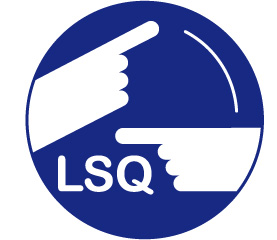Provincial Helpline
1-888-933-9007 or 514-933-9007
Toll-free | 24/7 | Bilingual | Confidential
Consent 
Sexual assault is a crime in that acts or behaviour of a sexual nature have taken place without your consent. Furthermore, the law also stipulates that a person under the age of 16 cannot consent to sexual acts.
Your consent is valid only if it has been freely given. If you were paralyzed by fear or afraid to defend yourself, there was no consent. Moreover, even if you kissed or caressed someone, it does not automatically mean that you consented to other activities of a sexual nature with that person. Nobody has the right to have any kind of sexual relations with you against your will. You always have the right to say NO. If you had no choice but to do what your assailant demanded of you, your consent was not freely given.
In short, the law says that a person must consent — through words or behaviour — to any sexual act. Similarly, that consent is no longer valid as soon as that person expresses her disagreement — in words or behaviour — even if she previously gave her consent.
There can be no consent if the person is incapable of consenting to sexual activity. A temporarily incapacitated person (who is unconscious or asleep, for example) cannot consent to sexual acts. A person who is under the influence of alcohol, drugs or medication may be too intoxicated to consent to sexual activity.
If, during a struggle, you injured your assailant, you will not be accused of assault. The law authorizes you to use necessary force to defend yourself against an attacker: this is called “legitimate self-defence.” It is not easy to defend oneself during a sexual assault. Every attack is different and every person reacts differently. Men as well as women and children can freeze in the face of a threat, a sudden danger, or the unknown. The fact that you did not physically resist or defend yourself does not mean that you consented to sexual activity. The law recognizes such cases as sexual assaults; it is always possible to file a complaint.
|
A sexual assault facilitated by drugs or alcohol is still an assault in the eyes of the law. Being intoxicated by drugs or alcohol is not an invitation to sexual contact. Similarly, consenting to drink alcohol does not constitute consent to having sexual relations. The only person responsible for the sexual assault is the perpetrator. |
|
Age of consent As of May 1, 2008, the law that establishes the age of consent has been modified, and the age of consent has been raised from 14 to 16 years of age. The law specifies that a person under 16 may not consent to acts and activities of a sexual nature. There are, however, two exceptions:
These exceptions apply only in cases where the older person is not in a position of authority or trust, and in the absence of an exploitative relationship such as prostitution or pornography. Children under 12 may under no circumstances consent to sexual relations. |
Tous droits réservés TCACSM 2026
Développement web : ViGlob